Japan is known for its clean and orderly living environment, but hidden issues like bed bugs can still be a concern, especially in older apartments or high-turnover rental areas. For foreign renters, these unwanted pests can add unexpected stress to an already complex housing process. This guide offers practical tips to help you avoid bed bug problems from the start. Learn how to research neighborhoods, inspect properties during viewings, take smart prevention steps after moving in, and respond effectively if an issue arises. Stay informed and protect your new home in Japan with confidence and peace of mind.
Hidden Worries When Renting in Japan
Japan’s reputation for cleanliness, safety, and well-organized living makes it a top choice for many expats. But beneath the surface, not every rental is perfect, and bed bugs remain a quiet but real concern, even in a country known for high hygiene standards. These tiny pests can show up in older buildings, high-turnover rentals, or apartments that haven’t been properly maintained. Once they appear, getting rid of them is neither easy nor cheap.
For foreign renters, the process of finding housing in Japan is already challenging, from navigating unfamiliar lease terms to overcoming the language barrier. In the middle of that, it’s easy to miss potential pest problems that could affect your health and comfort later.
The good news? Taking small steps early can make a big difference later. By doing some upfront research, asking the right questions, and inspecting the property carefully, you can greatly reduce your risk of dealing with a bed bug infestation. This list will support you through the process:
- Investigate neighborhoods and rental history
- Spot early signs of bed bugs during property tours
- Take preventive steps after moving in
- Understand your options if an issue comes up
Rent smart, stay informed, and enjoy a worry-free start to your life in Japan, without any unexpected pests tagging along.
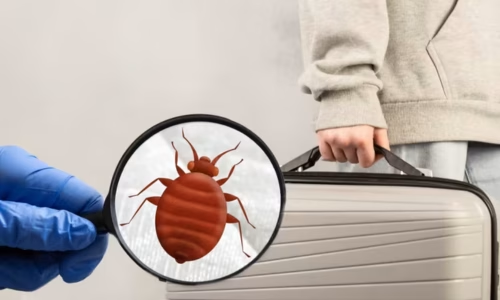
Before You Sign the Lease: Do Some Research
Finding an apartment in Japan can be exciting, but don’t rush into signing a lease without doing your homework. While photos and agent descriptions may highlight the best features, they often leave out potential concerns, especially when it comes to pests like bed bugs. Taking time to investigate the property and its surroundings can help you avoid unpleasant surprises later.
Learn About the Neighborhood
Before signing a lease, take a closer look at the area surrounding the property. Where you live matters just as much as the apartment itself, especially when it comes to hidden risks like pest problems.
Neighborhoods near busy train stations, tourist attractions, or low-cost accommodations often experience frequent tenant turnover. This constant movement can raise the risk of bed bug infestations, particularly in older or poorly managed buildings.
To get a clearer picture, tap into online communities. Explore housing threads on Reddit, join expat groups on Facebook, or ask questions in local forums. Real experiences shared by other renters can help you avoid problem areas that agents or listings may not disclose.
Doing this simple research early can save you from dealing with major issues later.
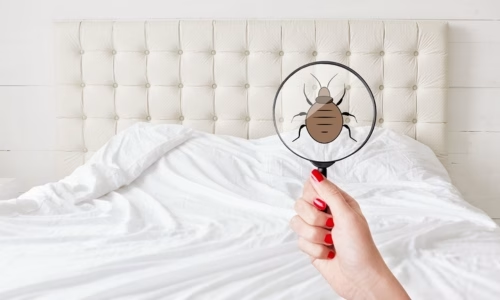
Ask About the Property’s History
When speaking with the landlord or real estate agent, it’s important to ask direct questions about the property’s condition, including any history of pest issues. Don’t be afraid to bring up bed bugs or past extermination efforts. In fact, a record of professional pest control isn’t always a bad sign; it can indicate that the building’s management takes problems seriously and responds quickly.
To get a better understanding, ask how often the building undergoes routine cleaning or pest inspections. Buildings with scheduled maintenance and preventative treatments are generally better maintained and pose less risk of infestations.
Being upfront during this stage can help you avoid surprises after moving in, and ensure you’re renting a property where hygiene and upkeep are a priority.
Carefully go over all lease conditions
Japanese rental agreements are often thorough, but they don’t always spell out responsibilities when it comes to pests like bed bugs. Before you sign, read the contract carefully and look for any terms related to pest control. Important questions to clarify include: Who is responsible for covering extermination costs if bed bugs appear? Is there any mention of pre-existing infestations or inspection reports?
Understanding these details in advance can help you avoid unexpected expenses or disputes later. If anything is unclear, don’t hesitate to ask the agent for clarification or request that specific terms be added to the lease for your protection.
During the Viewing: Be a Smart Inspector
Apartment tours are your one real chance to check for signs of hidden problems, and pests like bed bugs are high on that list. While most people focus on layout, lighting, or appliances, don’t forget to inspect the space for anything that could affect your comfort and health. Even in clean-looking apartments, bed bugs can go unnoticed unless you know exactly where, and how to look.
Taking just a few extra minutes to inspect key areas during your visit can help you avoid a stressful and costly situation down the line.
Know What Bed Bug Evidence to Look For
Start with the sleeping area, as beds are the most common place bed bugs gather. Look closely for:
- Small blood stains or black spots on bed linens, especially near the edges of mattresses
- Shed skins (thin, pale shells left behind as bugs grow)
- Tiny, white eggs roughly the size of a grain of rice
- A sweet or musty smell, which can suggest a larger infestation
- Actual bugs, usually flat, reddish-brown, and about the size of an apple seed
Check beyond just the mattress, look into bed frames, under furniture, behind electrical outlets, along baseboards, and inside closets or drawers. Bed bugs tend to hide in tight, dark spaces, so a visual inspection can reveal more than you’d expect.
Bring Tools to Help You Spot Trouble
To get the most out of your apartment viewing, it helps to come prepared. A small flashlight, or even the light on your phone, can make a big difference when checking dim corners, cracks in walls, or the underside of furniture. Bed bugs often hide in places that don’t receive much light, so a focused beam can reveal what the naked eye might miss.
If you want to be extra cautious, consider bringing a pair of disposable gloves. This allows you to safely lift bedding, open drawers, or inspect the seams and joints of upholstered furniture without direct skin contact. It’s a small step, but it adds an extra layer of hygiene and peace of mind.
These easy-to-carry tools can help you inspect areas landlords or real estate agents might not point out, giving you a more complete picture of the unit’s condition. Being proactive during your visit not only shows you’re a careful and responsible renter, but it also increases your chances of finding a truly clean, safe, and pest-free home in Japan.
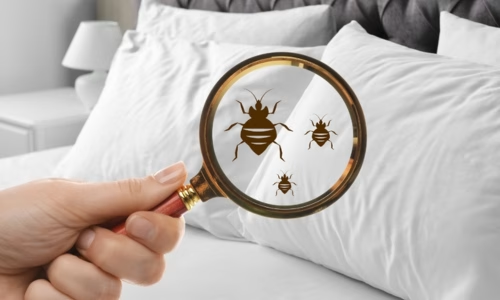
After Moving In: Prevent & Respond Proactively
Even if your apartment looks spotless and well-maintained on the day you move in, it’s still important to take a few preventive steps to protect your space. Bed bugs are masters of hiding and can go undetected during brief inspections, especially in hard-to-reach areas like mattress seams, furniture joints, or behind baseboards. In some cases, they may not be present in the unit itself but can hitch a ride on your luggage, clothing, or personal items, especially if you’ve recently stayed in hotels, guesthouses, or shared accommodations.
Taking action early doesn’t require much effort but can go a long way in maintaining a clean, pest-free living environment. By treating your first day as a setup for long-term comfort, you’ll create a safer home and reduce the risk of dealing with costly or stressful infestations later on. Being proactive now means peace of mind for the months ahead.
On Your First Day: Set a Clean Foundation
When you first move in, take time to thoroughly clean and sanitize your living space. Here’s what to prioritize:
- Wash and dry all fabrics: Use hot water and high heat to clean bedsheets, towels, and clothing. Heat is one of the most effective ways to kill bed bugs or eggs that may have hitched a ride.
- Vacuum thoroughly: Go over the entire floor, rugs, mattress edges, sofa crevices, and corners of each room. Pay attention to concealed spaces, including the area below the bed or behind shelves. After vacuuming, seal and discard the vacuum bag or clean out the container immediately.
- Inspect your luggage: If you’ve recently stayed in hotels or shared accommodations, double-check bags, backpacks, and suitcases to ensure you’re not bringing pests into your new home.
Maintain Good Habits to Prevent Infestations
Long-term prevention is about consistency. Keep your living environment tidy with regular routines:
- Vacuum frequently, especially near beds and sofas.
- Inspect your sleeping area now and then for early signs of activity, such as tiny dark spots or shed skins.
- Use caution when bringing in used furniture. While used items can save money, only bring them in if you trust the source and have thoroughly checked for pests. Think twice before picking up any furniture that’s been thrown out.
If You Discover Bed Bugs: Take Calm, Clear Action
Finding bed bugs in your home can be alarming, but acting calmly and quickly is the key:
- Stay calm infestations can be dealt with effectively if handled properly.
- Reach out to the property manager quickly. Most professional management companies in Japan will arrange for pest control services.
- Avoid DIY chemical sprays unless you’re certain they’re safe and effective. Many over-the-counter products can worsen the problem or be harmful to your health. It’s best to let licensed professionals handle treatment.
Conclusion
Being informed is your best defense against bed bugs. While not common in every apartment, they’re a real concern worth taking seriously. Take the time to check carefully before moving in, keep your space clean, and speak up if you notice anything unusual.
By staying alert and proactive, you can enjoy your new chapter in Japan with greater comfort and confidence.

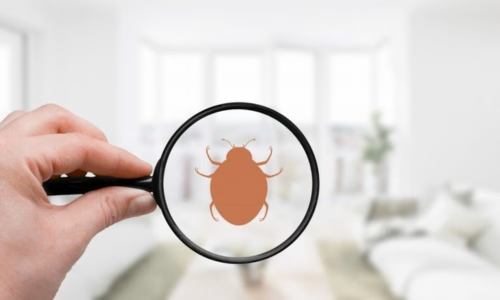

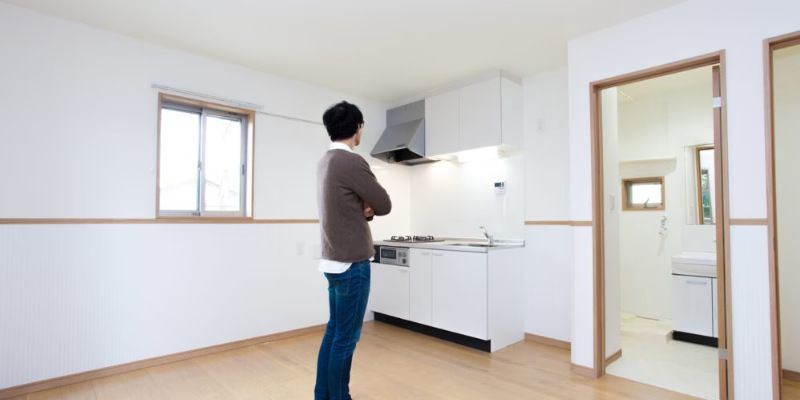
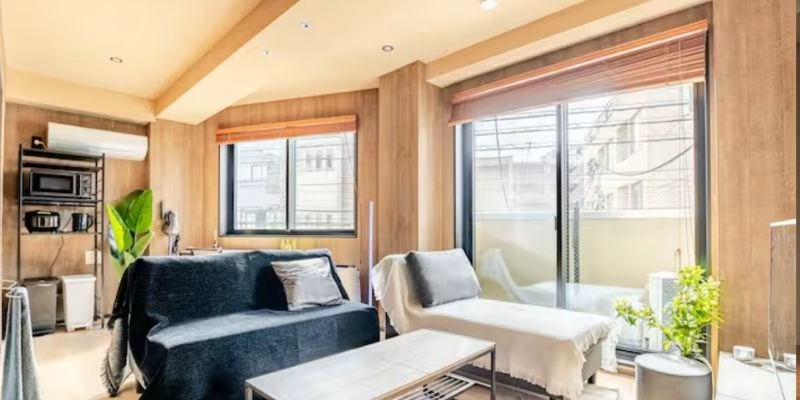

Leave a Reply